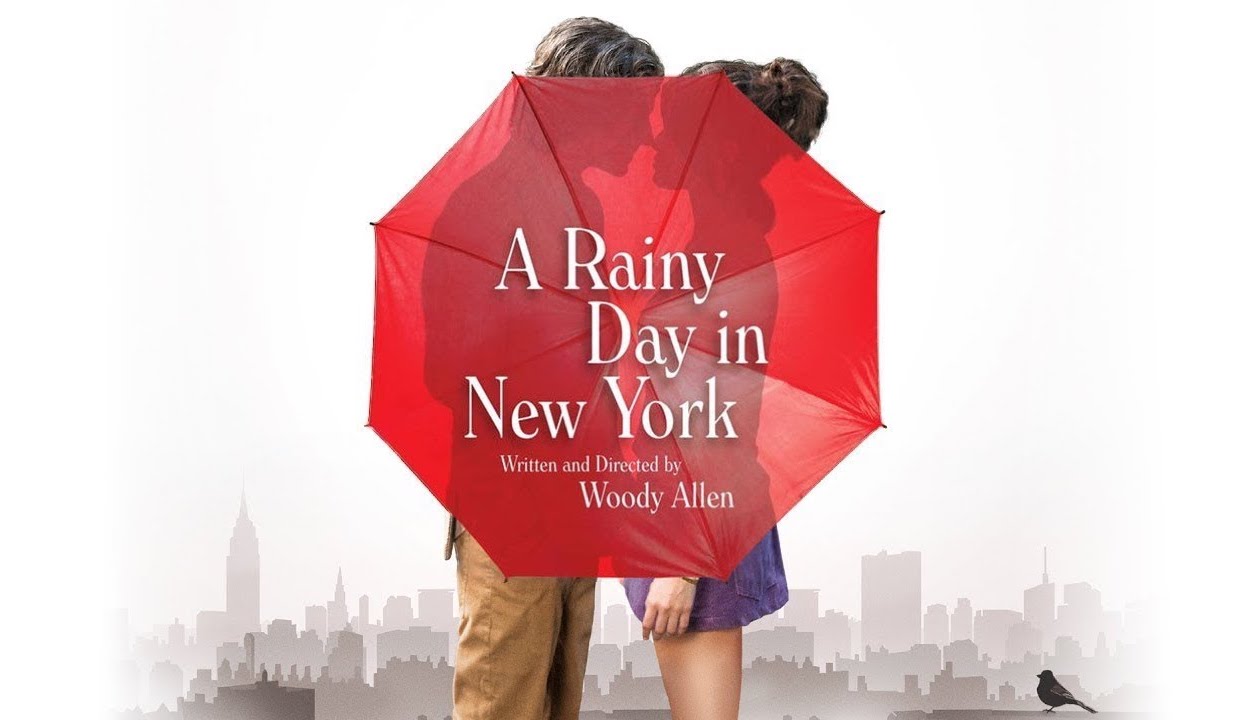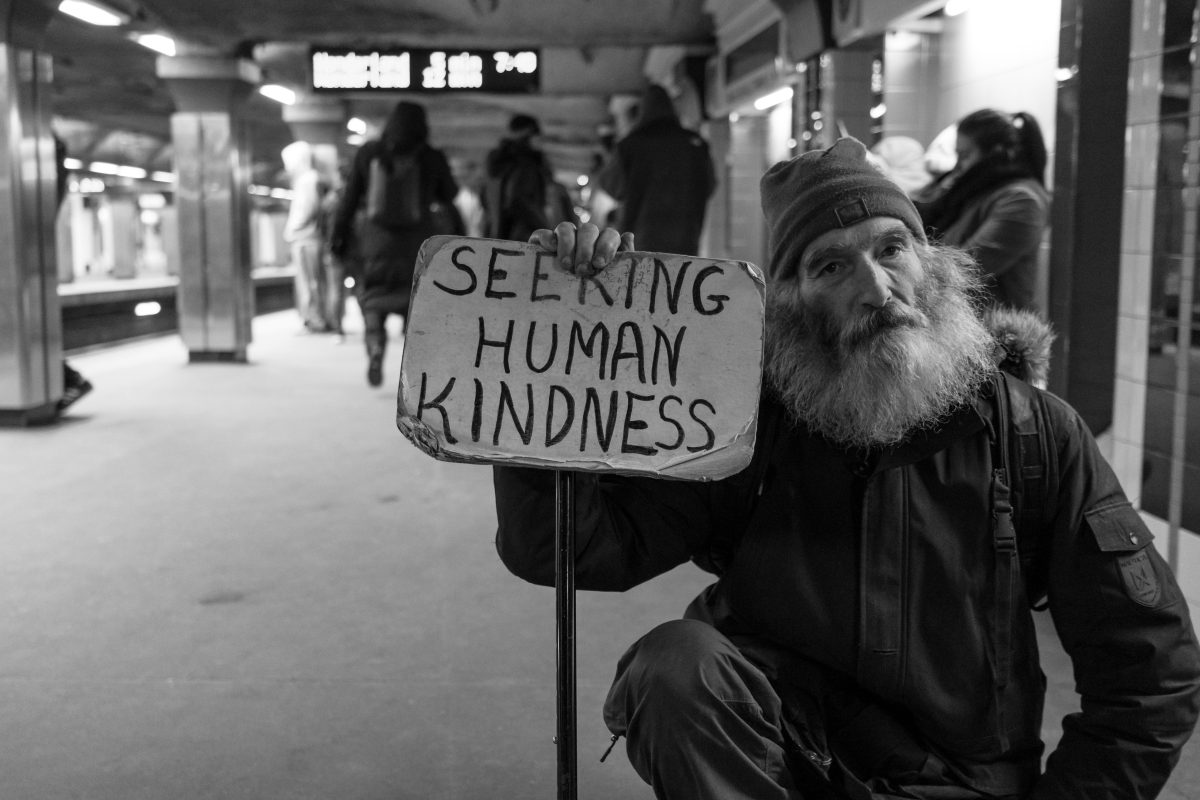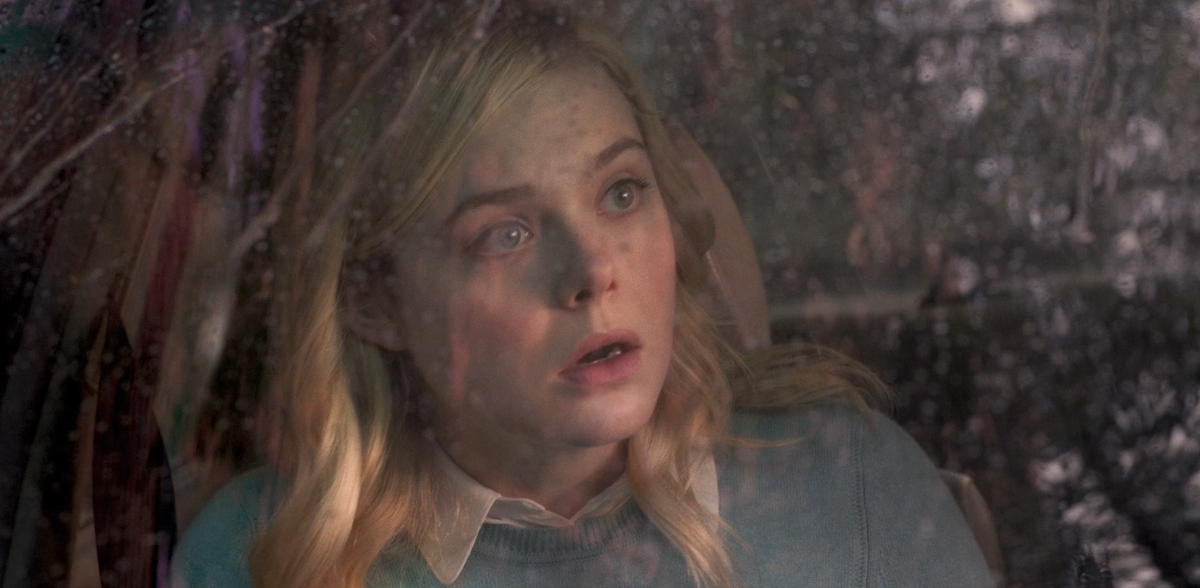Cinema
A Rainy Day in New York—A Review
This is the territory with which Allen feels most familiar and confident—a spare, crisp, and yet intricately plotted tale that juggles characters and situations with sensitivity and bathos.

In spite of a fresh round of uninformed press attacks, celebrity denouncements, and calumnies catalysed by the #MeToo movement, Woody Allen has remained an irrepressible creative force. Amid the kind of controversy that might have destroyed any other artist’s sanity, he somehow managed to produce a memoir and two new films. Getting his work in front of an audience, however, has proved to be more difficult.
The long-discredited allegation that Allen molested his adopted daughter Dylan when she was seven was most recently revived by Allen’s former partner Mia Farrow and their son Ronan during the 2014 Golden Globe ceremony at which Allen was being honored. Ronan Farrow is now an investigative journalist whose star rose rapidly during the #MeToo era as a result of his Pulitzer Prize-winning articles for the New Yorker about Harvey Weinstein, and he has not hesitated to use his newfound celebrity and moral authority to pursue a vendetta against his estranged father. It was he who led the public condemnations of Hachette in March for agreeing to publish Allen’s book, and on May 23rd, the New York Post reported that the Farrows had also attempted to kill a lengthy and sympathetic profile of Allen’s wife, Soon-Yi, written by Daphne Merkin for New York Magazine. “I wasn’t used to this level of fear… of being sued, of the power of Mia and Ronan…” Merkin remarked.
These spiteful campaigns have been depressingly effective. While Ronan Farrow did not succeed in killing Merkin’s essay, Allen’s memoir Apropos of Nothing was abruptly dropped by Hachette a month before publication, and Amazon Studios announced that they were shelving his newly completed film A Rainy Day in New York “indefinitely.” The four-picture distribution deal the company had agreed with the filmmaker, Amazon later added, was also now dead. Allen sued them for $68m alleging breach of contract, but while the distribution rights were returned to him and the suit settled out of court, the film is still without an American distributor. Allen’s enemies appeared to have prevailed at last. What, after all, is the point of creating if no-one can see what you create? He was finished. Kaput. Old, of course, out of touch, and disgraced.
And yet, suddenly, the tide seems to be turning in his favor. Censorship campaigns will, paradoxically, sometimes do wonders for book sales. When Allen found a new publisher for his memoir, its belated release attracted some favorable reviews and, as if to rebuke Hachette’s poor judgment and cowardice, it has subsequently become a bestseller. In the last few days, a startling series of developments may yet even shift the #MeToo narrative in Allen’s favor. The New York Times, which has often been hostile to Allen in recent years, has just published a quietly devastating exposé of Ronan Farrow written by its new media critic, Ben Smith. Smith identified multiple errors in Farrow’s reporting which, he persuasively argued, revealed a cavalier approach to the truth. As a journalist who had worked for Bloomberg News for 24 years was moved to remark:
The best journalists know that accuracy is the bedrock of the business, and that they must always let facts get in the way of a great narrative. Ronan Farrow appears to have gotten that backward, and, if true, he has delivered another terrible blow to an institution already under siege from fabulists and frauds.
The golden boy’s halo may not have been toppled just yet (as the ferocious backlash from Farrow’s disciples on social media demonstrated), but it has certainly been knocked askew. His credibility in media circles is no longer a foregone conclusion.
Perhaps most satisfying of all, on May 13th, the Guardian reported that A Rainy Day in New York had leapt to international success, becoming the highest-earning film at the global box office:
With most of the world’s cinemas shut down due to the coronavirus pandemic, A Rainy Day in New York is reported by Box Office Mojo to have earned over $330,000 last weekend in South Korea, after the country began to ease its strict lockdown in recent days. Figures are difficult to come by, but reports suggest that A Rainy Day in New York’s total is well ahead of Pixar’s Onward, which took just over $17,000 in Norway, La Belle Epoque, which earned $35,000 in Australia, and The Wretched which took $69,000 in the US.
Not only had the film almost been buried by its own distributor, but it had also, disgracefully, been disowned by some of its own cast members. Actors Timothée Chalamet, Selena Gomez, and Griffin Newman were all too young to have followed the excruciating examination of the child abuse allegations when they were first raked over by a prurient public and press in 1992 (Chalamet had not even been born, and Gomez was only a few days old). That hardly disqualifies them from informed judgment, of course. What is not excusable is that they demonstrably failed to acquaint themselves with the facts before ungratefully declaring that they regretted working with Allen. In a further display of penitential preening, they announced that they would be donating their respective salaries to the Rape, Abuse, and Incest National Network (RAINN) and anti-abuse organisation Time’s Up. Even Rebecca Hall, who had worked with Allen before on Vicky Cristina Barcelona, donated her salary to RAINN, although, peculiarly, she explained that this gesture should not be understood as a judgement on the allegations themselves which she said were “complex.”

Still, grateful though I was that A Rainy Day in New York had finally found a receptive audience in spite of the campaigns to sabotage it, I approached Allen’s latest offering with some trepidation. His last three films, Café Society, Irrational Man, and Wonder Wheel had been dreadful. Over the course of a long career, he has developed a pattern of alternating one fine or terrific film with one or two bad or disappointing ones—an unbroken stretch of three bad movies has been rare (although not unprecedented—Small Time Crooks in 2000 was followed by The Curse of the Jade Scorpion in 2001 and Hollywood Ending in 2002). Watching Wonder Wheel at the Lincoln Center with an illustrious audience just months before the #MeToo movement pulverized Allen’s reputation, I gazed in disbelief as the bejeweled audience rose as one, turned their heads to the balcony where Allen and the film’s producers stood, and warmly applauded their efforts. I feel certain that many of the sycophants in attendance that night joined the jackals as soon as it was appropriate to do so. That kind of fecklessness certainly justifies Allen’s indifference to the whims of fame and fortune.
It would have been disappointing to report that, notwithstanding the meretricious worth that censorship sometimes bestows on indifferent work, Woody Allen had delivered yet another dud unworthy of the efforts to destroy it. So I am very pleased to report that he hasn’t. While A Rainy Day in New York doesn’t scale the heights of Allen’s finest work, it is nonetheless a film of many charms—not least among which is Allen’s celebration of Manhattan in all its sophistication and physicality, at a time when the city he loves has been turned into a ghost town by the pandemic. As always, he explores the tantalizing possibilities of romance and maddening complexities of love, and as usual, this refreshing comedy unfolds in sumptuous apartments amid the trappings of bourgeois luxury: Allen has often fastened on the wealthy upper East Side milieu as a hedge against death.

Romantic love is frequently connected with the sights and sounds of iconic Manhattan locations in Allen’s films: the bench on Sutton Place overlooking the East River (actually there was no bench there); the world-famous skyline; horse-drawn carriage rides in Central Park; the Metropolitan and Guggenheim Museums; the Plaza, Carlyle, and Pierre Hotels; the Thalia Theater, legendary home of the De Sica and Rossellini movies that mesmerized Allen in his youth; Washington Square, Patchin Place; MacDougal Street and Minetta Lane in Greenwich Village; the 59th Street Bridge; the Brooklyn Bridge—all reminders of how much Allen adores New York City. In Rainy Day he finds an enchanting addition: the Delacorte Clock in the Central Park zoo, encircled by bronze animals with tiny drums, accordions, and violins rendering nursery rhymes on the hour.
The film opens by introducing us to Allen’s latest alter-ego in the figure of Gatsby Welles (Chalamet), a 23-year-old directionless college dreamer. Like the young Allen, Welles is a nimble gambler who racks up large sums in winnings, loves Irving Berlin and the American Songbook, and offers a poignant rendition of “Everything Happens to Me” (echoing Allen’s lovely amateurish rendering of “I’m Through With Love” in Everyone Says I Love You). We know it’s Woody from Gatsby’s first lines, as he laments the tics in the grass at his college and talks about how he eschews higher education and “appropriate” behavior. Most of all, he treasures what remains of the past, such as the pianist playing old tunes in the Carlyle Hotel lounge and the murals by Ludwig Bemelmans. And, of course, he loves Manhattan in the rain. He is not unlike the protagonist of the wonderful Midnight in Paris who at the stroke of 12 is transported back to the era of Hemingway, Gertrude Stein, and Fitzgerald.
Gatsby is infatuated with Ashleigh (a charming Elle Fanning, who to her credit did not join her colleagues in shunning the film), a blonde and somewhat ditzy reporter for the student paper, who was crowned “Miss Amiability” by her Arizona high school in a beauty contest. Ashleigh lands an interview in Manhattan with world-famous film director Roland Pollard (superbly played by Liev Schreiber), and the couple board a bus to New York. Gatsby plans to show Ashleigh the Manhattan scenes he loves, but instead she abandons him in pursuit of her story and starstruck by the attention she receives, first from Pollard—of whom she is in awe but who, it turns out, is consumed by self-doubt—then from his unhappily married screenwriter, Ted (Jude Law), and finally from a dashing but faithless movie star in toreador pants (Diego Luna). Each decides to make her his muse and flatters her with compliments.

Ashleigh, swinging between wide-eyed infatuation and delighted bemusement, falls for each of them for several minutes at a time, and Allen and Fanning deftly capture Ashleigh’s naivety. When Pollard, impulsively eager to discuss his disenchantment with the movie he is making, offers the cub reporter a “scoop,” she asks “Of what?” When she is accused of being a 15-year-old bimbo by Ted’s sullen and unfaithful wife, she brightly produces a student identity card that shows she is in fact a 22-year-old bimbo. The nuances of Fanning’s beguiling performance are like a slideshow of rapidly shifting emotions. Some of her best moments emerge when her celebrity suitors ask her if she is attached, and we watch loyalty wrestle with temptation as she stammers and prevaricates and tries to decide whether to betray Gatsby for a fleeting passionate fling with a movie star—an experience about which she dreams of boasting to her kids. Gatsby is “quaint,” she allows with an awkward giggle, damning him with the faintest of praise as she tries to decide what to do and with whom.
Gatsby’s plans for the day are ruined, and as the heavens open, he is left alone to wander the city forlorn under the torrential rainfall. Chalamet is a charismatic and sensitive actor and he handles the role reflectively. By chance he learns that a school friend is filming a film project nearby on Minetta Lane. He stops by to say hello, and finds himself pressed into appearing in a short scene, in which he is required to kiss Chan (Gomez), who it turns out is the younger sister of Gatsby’s former girlfriend. The kiss starts indifferently, but on the third take he is hooked, and a more promising romance begins. The scenes of the kiss, as well as a later scene in which Gatsby sings while playing the piano and Chan learns more about him than he can express in words, are vintage Allen, and the film emerges thereafter as an enchanting comedy romance. Chan is a sexy and bluntly forthright challenge to the gentle Gatsby and their peppery exchanges are laced with wit.
In his memoir, Allen writes that “I always wanted to shoot Manhattan in the rain, do a whole story that takes place on one rainy day.” Yet every day was sunny “when we needed gray skies and rain, and all the rain in the movie was supplied by our own rain towers and water tanks.” Veteran cinematographer Vittorio Storaro (who also photographed Wonder Wheel) shoots the city streets in tender amber hues that bring a fairytale quality to the misadventures of the film’s two protagonists. The musical score, always a critical element in Allen films, is a selection of piano renderings from Allen’s beloved Great American Songbook by Erroll Garner and Conal Fowkes. But for all the sumptuous images, the delicate musical cues, and the easy charm of the leads, the film’s success belongs to Allen the storyteller, who has reached into the bedside drawer in which he keeps his accumulated scraps of story ideas, and withdrawn a late gem.
This is the territory with which Allen feels most familiar and confident—a spare, crisp, and yet intricately plotted tale that juggles characters and situations with sensitivity and bathos. In a particularly memorable scene, Gatsby’s mother (played by the brilliant stage actress Cherry Jones) delivers an unexpectedly moving monologue that helps to break a lifetime’s emotional misunderstanding between mother and son. Elsewhere, Gatsby’s despondent friend confesses that he finds his fiancée’s laugh so intolerable it makes him impotent. And finally, there is the scene in Central Park on the horse-drawn carriage in which Gatsby quotes a Cole Porter lyric to the faithless but endearing Ashleigh about “the roaring traffic’s boom, the silence of my lonely room” (which Ashleigh misattributes to Shakespeare), before hopping off the carriage and fondly bidding her farewell. With a wave to the world of “appropriate pretentiousness” he hates, he returns to the Delacorte Clock where another, more suitable lover awaits.






